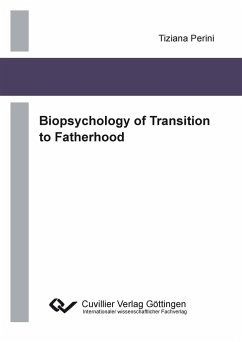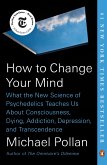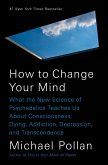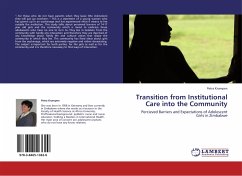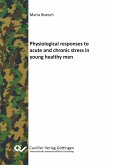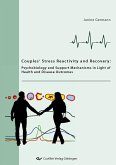The focus of this work was on fathers across the transition to fatherhood. The purpose of the empirical studies was to explore the association of testosterone (T) and paternal investment including interpersonal differences in personality traits and relationship quality. Providing paternal care is associated with a reduced likelihood of engaging in competitive or mating behavior and also of providing protection when necessary. T is a psychobiological marker of reproductive behavior. Recent studies found decreasing T levels in males across the transition to fatherhood, in order to reduce mating effort in favor of providing paternal care. In addition, there is empirical evidence for reducing relationship quality in parents across the transition to parenthood. Therefore, a direct association of T level and relationship quality was suggested. Moreover, researchers have assumed that sensation seeking (SS) is associated with both mating effort and T. For this reason, the personality trait SS was included in further investigations of the second study of this work. Thirty-seven fathers and 38 men in committed romantic relationships without children (controls) were recruited. On two days (four weeks prior to (t1) and eight weeks after birth (t2) for fathers, and three months after the first measurement day for controls), all subjects repeatedly collected saliva samples for T measurement at three times of the day, filled in a protocol of activities and completed online questionnaires.
Hinweis: Dieser Artikel kann nur an eine deutsche Lieferadresse ausgeliefert werden.
Hinweis: Dieser Artikel kann nur an eine deutsche Lieferadresse ausgeliefert werden.

